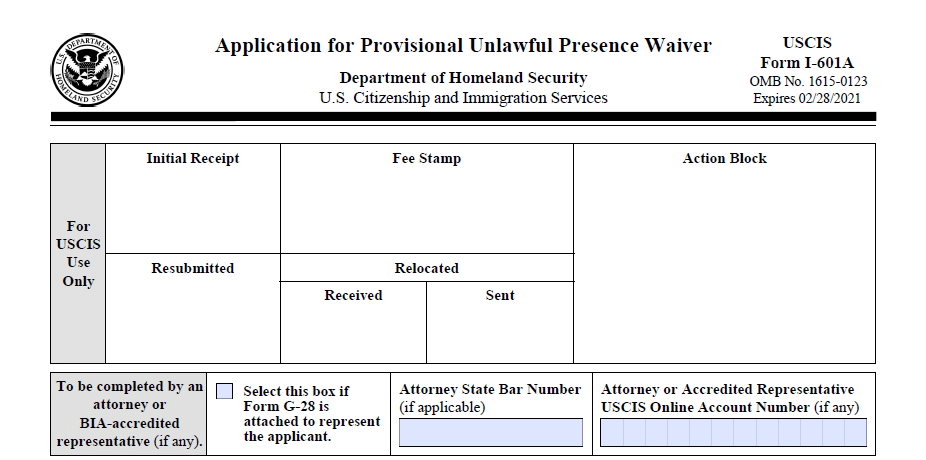El 31 de enero de 2020, el presidente Donald Trump anunció que emitió una orden ejecutiva que prohibía a los ciudadanos de ciertos países viajar a los Estados Unidos. Esta prohibición de viajar sigue a una similar que se dirigió a países de mayoría musulmana en 2017 y que la Corte Suprema confirmó como constitucional.
In Executive Order 13780 of March 6, 2017 (Protecting the Nation from Foreign Terrorist Entry Into the United States), I temporarily suspended entry of nationals of certain specified countries and ordered a worldwide review of whether the United States would need additional information from each foreign country to assess adequately whether nationals of that foreign country seeking to enter the United States pose a security or public-safety threat to the United States, and if so, what additional information was needed. The Secretary of Homeland Security, pursuant to Executive Order 13780 and in consultation with the Secretary of State and the Director of National Intelligence, developed an assessment model using three categories of criteria to assess national security and public-safety threats: whether a foreign government engages in reliable identity-management practices and shares relevant information; whether a foreign government shares national security and public-safety information; and whether a country otherwise poses a national security or public-safety risk.
Following a comprehensive worldwide review of the performance of approximately 200 countries using these criteria, the Secretary of Homeland Security presented the results of this review, focusing in particular on those countries that were deficient or at risk of becoming deficient in their performance under the assessment criteria. After a subsequent period of diplomatic engagement on these issues by the Department of State, the Acting Secretary of Homeland Security submitted a report in September 2017, which found that eight countries were hindering the ability of the United States Government to identify threats posed by foreign nationals attempting to enter the United States. The Secretary of Homeland Security then recommended that I impose travel restrictions on certain nationals of those countries. After consultation with relevant Cabinet officials and appropriate Assistants to the President, I issued Proclamation 9645 of September 24, 2017 (Enhancing Vetting Capabilities and Processes for Detecting Attempted Entry Into the United States by Terrorists or Other Public-Safety Threats).
In Proclamation 9645, I suspended and limited the entry into the United States of certain nationals of eight countries that failed to satisfy the criteria and were unable or unwilling to improve their information sharing, or that otherwise presented serious terrorism-related risks. Those travel restrictions remain in effect today, with one exception. On April 10, 2018, I issued Proclamation 9723 (Maintaining Enhanced Vetting Capabilities and Processes for Detecting Attempted Entry Into the United States by Terrorists or Other Public-Safety Threats), removing travel restrictions on nationals of the Republic of Chad. Chad had improved its identity-management and information-sharing practices by taking steps to issue more secure passports and by increasing the integrity of how its government handles lost and stolen passports. Chad also began to share information about known or suspected terrorists in a manner that makes that information available to the United States screening and vetting programs, and it created a new, standardized process for the United States to request relevant criminal information.
Pursuant to my directives in section 4 of Proclamation 9645, the Department of Homeland Security (DHS) has continued to assess every 180 days and report to me on whether the interests of the United States require the suspension of or limitation on entry of certain classes of foreign nationals. DHS has also continued to assess ways to further improve its processes for measuring how countries perform under the assessment criteria. From July 2018 through August 2019, DHS updated its methodology to assess compliance with the assessment criteria, which has allowed for more in-depth analysis and yields even more granularity and increased accuracy regarding each country’s performance under the criteria.
In this updated methodology, the general overall criteria for review have not changed. The United States Government still expects all foreign governments to share needed identity-management information, to share national security and public-safety information, and to pass a security and public-safety risk assessment. Building on experience and insight gained over the last 2 years, DHS has, however, refined and modified the specific performance metrics by which it assesses compliance with the above criteria. For example, while the prior model determined whether a country shares certain needed information, the revised model accounts for how frequently the country shares that information and the extent to which that data contributes to border and immigration screening and vetting. As another example, the prior system asked whether a country issued electronic passports at all, whereas the refined metrics assess whether a country issues electronic passports for all major classes of travel documents. Similarly, the lost and stolen passports criterion previously assessed whether a country had prior instances of reporting loss or theft to the International Criminal Police Organization (INTERPOL), whereas the revised model now assesses whether the country has reported lost or stolen passports to INTERPOL within 30 days of a report of a loss or theft.
The DHS improvements to the assessment criteria also involve additional, and more customized, data from the United States Intelligence Community. DHS’s original evaluation under Executive Order 13780 relied on existing intelligence products to assess the threat from each country. With the benefit of 2 years of experience, DHS has worked closely with the Intelligence Community to define intelligence requirements and customize intelligence reporting that offers a detailed characterization of the relative risk of terrorist travel to the United States from each country in the world. This additional detail improves DHS’s assessment of national security and public-safety risk.
In addition, DHS greatly increased the amount of information obtained from United States Embassies abroad, which work closely with foreign governments. United States Embassies are best positioned to understand their host countries’ ability and willingness to provide information to the United States, and United States Embassies’ assessments contribute to a clearer understanding of how well a foreign government satisfies the assessment criteria. DHS also consolidated statistical information on operational encounters with foreign nationals. This information speaks to the frequency with which a country’s nationals commit offenses while in the United States or otherwise develop grounds for inadmissibility under the Immigration and Nationality Act (INA).
Finally, as more precise, granular data became available, it became clear that many countries were only partially implementing each criterion. The 2017 process had three basic potential compliance ratings for each criterion: in compliance, out of compliance, or unknown. The updated methodology allows the United States to account for ways in which countries partially comply with the metrics associated with each criterion. As a result, for example, countries that DHS assessed in the 2017 review have now received more nuanced, partial compliance ratings. In addition, the process now weighs each criterion and risk factor based on its degree of importance to the United States Government for conducting screening and vetting of visa applicants and other travelers to the United States.
Using this enhanced review process, DHS conducted its most recent, worldwide review pursuant to Proclamation 9645 between March 2019 and September 2019. The process began on March 11, 2019, when the United States Government formally notified all foreign governments (except for Iran, Syria, and North Korea) about the refined performance metrics for the identity-management and information-sharing criteria. After collecting information from foreign governments, multilateral organizations, United States Embassies, Federal law enforcement agencies, and the Intelligence Community, multiple subject matter experts reviewed each country’s data and measured its identity-management and information-sharing practices against the criteria. DHS then applied the data to an algorithm it developed to consistently assess each country’s compliance with the criteria.
DHS identified the worst-performing countries for further interagency review and for an assessment of the potential impact of visa restrictions. As in the worldwide review culminating in Proclamation 9645, the Acting Secretary of Homeland Security assessed that Iraq did not meet the baseline for compliance. As part of the interagency review process, the Acting Secretary of Homeland Security determined, however, not to recommend entry restrictions and limitations for nationals of Iraq. In his report, the Acting Secretary of Homeland Security recognized a close cooperative relationship between the United States and the democratically elected government of Iraq, the strong United States diplomatic presence in Iraq, the significant presence of United States forces in Iraq, and Iraq’s commitment to combating the Islamic State of Iraq and Syria (ISIS). The Acting Secretary of Homeland Security considered another similarly situated country and determined that, for reasons similar to those present in Iraq, entry restrictions and limitations would not be appropriate.
In addition, the United States Government, led by the Department of State, continued or increased engagements with many countries about those countries’ deficiencies. A number of foreign governments sent senior officials to Washington, D.C., to discuss those issues, explore potential solutions, and convey views about obstacles to improving performance. As a result of this engagement, one country made sufficient improvements in its information-sharing and identity-management practices and was removed from consideration for travel restrictions.
On September 13, 2019, the Acting Secretary of Homeland Security, after consulting with the Secretary of State, the Attorney General, the Director of National Intelligence, and the heads of other appropriate agencies, submitted a fourth report to me recommending the suspension of, or limitation on, the entry of certain classes of nationals from certain countries in order to protect United States national security, including by incentivizing those foreign governments to improve their practices. The Acting Secretary of Homeland Security recommended maintaining the current restrictions on the seven countries announced in Proclamation 9645 (apart from Chad), as well as implementing suspensions and limitations on entry for certain nationals of twelve additional countries.
Since the Acting Secretary of Homeland Security issued his report on September 13, 2019, the Secretary of State, consistent with section 4(b) of Proclamation 9645, has continued to engage many foreign governments regarding the deficiencies identified in DHS’s report and has continued to consult with the Acting Secretary of Homeland Security, the Secretary of Defense, and other Cabinet-level officials about how best to protect the national interest. Based on these engagements, in January 2020, those senior officials recommended that I maintain the entry restrictions adopted in Proclamation 9645 (as modified by Proclamation 9723), and that I exercise my authority under section 212(f) of the INA to suspend entry into the United States for nationals of six new countries — Burma (Myanmar), Eritrea, Kyrgyzstan, Nigeria, Sudan, and Tanzania — until those countries address their identified deficiencies.
The January 2020 proposal recommended visa restrictions on fewer countries than identified by the September 2019 DHS report. For example, the January 2020 proposal recommended no entry restrictions on nationals of one country that had been recommended for restrictions in the September 2019 report. This country made exceptional progress in correcting deficiencies since the September 2019 report, such that it could no longer be characterized as a country that is among those posing the highest degree of risk. In addition, the January 2020 proposal recommended that, for five poorly performing countries, foreign policy interests warranted a different approach than recommended in the September 2019 report. Specifically, the January 2020 proposal suggested that diplomatic engagement and requests for specific improvements during a defined 180-day period would be more appropriate and more likely to result in immediate improvements in these five countries. Each of these five countries provides critical counterterrorism cooperation with the United States and therefore holds strategic importance in countering malign external actors. In several of the five countries, the United States has experienced a recent deepening of diplomatic ties that generally mark increased cooperation toward achieving key regional and global United States foreign policy goals. Importantly, all five countries have credibly communicated willingness to work directly with the United States Government to correct their outstanding deficiencies, and the United States believes progress is imminent for several countries and underway for others. For these reasons, these countries will be given an opportunity to show specific improvements in their deficiencies within the next 180 days.
Consistent with recommendations contained in the January 2020 proposal, I have decided to leave unaltered the existing entry restrictions imposed by Proclamation 9645, as amended by Proclamation 9723, and to impose tailored entry restrictions and limitations on nationals from six additional countries. I have decided not to impose any nonimmigrant visa restrictions for the newly identified countries, which substantially reduces the number of people affected by the proposed restrictions. Like the seven countries that continue to face travel restrictions pursuant to Proclamation 9645, the six additional countries recommended for restrictions in the January 2020 proposal are among the worst performing in the world. However, there are prospects for near-term improvement for these six countries. Each has a functioning government and each maintains productive relations with the United States. Most of the newly identified countries have expressed a willingness to work with the United States to address their deficiencies, although it may take some time to identify and implement specific solutions to resolve the deficiencies.
Consistent with the January 2020 proposal, I have prioritized restricting immigrant visa travel over nonimmigrant visa travel because of the challenges of removing an individual in the United States who was admitted with an immigrant visa if, after admission to the United States, the individual is discovered to have terrorist connections, criminal ties, or misrepresented information. Because each of the six additional countries identified in the January 2020 proposal has deficiencies in sharing terrorist, criminal, or identity information, there is an unacceptable likelihood that information reflecting the fact that a visa applicant is a threat to national security or public safety may not be available at the time the visa or entry is approved.
For two newly identified countries that were among the highest risk countries, but performed somewhat better than others, I have decided, consistent with the January 2020 proposal, to suspend entry only of Diversity Immigrants, as described in section 203(c) of the INA, 8 U.S.C. 1153(c). Such a suspension represents a less severe limit compared to a general restriction on immigrant visas, given the significantly fewer number of aliens affected. The Acting Secretary of Homeland Security considers foreign-government-supplied information especially important for screening and vetting the Diversity Visa population in comparison to other immigrant visa applicants, and I agree with that assessment. In many cases, the United States Government may not have the same amount of information about Diversity Visa applicants compared with other categories of immigrant visa applicants because Diversity Visa applicants, with limited exceptions, do not have the burden to show certain family ties to or employment in the United States, or particular service to the United States Government, as required for other immigrant visa categories.
Consistent with the January 2020 proposal, I have decided not to impose any restrictions on certain Special Immigrant Visas for nationals of the six newly identified countries. Applicants under Special Immigrant programs generally do not need to demonstrate the same work or familial ties as other immigrant visas, but do need to show other unique qualifications. This exception is intended to cover those Special Immigrants who have advanced United States interests (and their eligible family members), such as foreign nationals who have worked for a United States Embassy for 15 years or more and are especially deserving of a visa.
As President, I must continue to act to protect the security and interests of the United States and its people. I remain committed to our ongoing efforts to engage those countries willing to cooperate, to improve information-sharing and identity-management protocols and procedures, and to address both terrorism-related and public-safety risks. And I believe that the assessment process, including enhancements made to that process, leads to new partnerships that strengthen our immigration screening and vetting capabilities. Until the countries identified in this proclamation satisfactorily address the identified deficiencies, I have determined, on the basis of a recommendation from the Acting Secretary of Homeland Security and other members of my Cabinet, to impose certain conditional restrictions and limitations on entry into the United States of nationals of the countries identified in section 1 of this proclamation, as set forth more fully below.
NOW, THEREFORE, I, DONALD J. TRUMP, President of the United States of America, by the authority vested in me by the Constitution and the laws of the United States of America, including sections 212(f) and 215(a) of the INA, 8 U.S.C. 1182(f) and 1185(a), and section 301 of title 3, United States Code, hereby find that, absent the measures set forth in this proclamation, the immigrant entry into the United States of persons described in section 1 of this proclamation would be detrimental to the interests of the United States, and that their entry should be subject to certain restrictions, limitations, and exceptions. I therefore hereby proclaim the following:
Section 1. Suspension of Entry for Nationals of Countries of Identified Concern. The entry into the United States of nationals of the following countries is hereby suspended and limited, as follows, subject to section 2 of this proclamation.
(a) The entry suspensions and limitations enacted by section 2 of Proclamation 9645 are not altered by this proclamation, and they remain in force by their terms, except as modified by Proclamation 9723.
(b) Burma (Myanmar)
(i) Although Burma has begun to engage with the United States on a variety of identity-management and information-sharing issues, it does not comply with the established identity-management and information-sharing criteria assessed by the performance metrics. Burma does not issue electronic passports nor does it adequately share several types of information, including public-safety and terrorism-related information, that are necessary for the protection of the national security and public safety of the United States. Burma is in the process of modernizing its domestic identity-management and criminal-records systems and has worked with the United States to develop some of those systems. It has also recognized the need to make improvements. As its capabilities improve, the prospect for further bilateral cooperation will likely also increase. Despite these encouraging prospects, Burma’s identified deficiencies create vulnerabilities that terrorists, criminals, and fraudulent entrants could exploit to harm United States national security and public safety.
(ii) The entry into the United States of nationals of Burma as immigrants, except as Special Immigrants whose eligibility is based on having provided assistance to the United States Government, is hereby suspended.
(c) Eritrea
(i) Eritrea does not comply with the established identity-management and information-sharing criteria assessed by the performance metrics. Eritrea does not issue electronic passports or adequately share several types of information, including public-safety and terrorism-related information, that are necessary for the protection of the national security and public safety of the United States. Further, Eritrea is currently subject to several nonimmigrant visa restrictions. Eritrea does not accept return of its nationals subject to final orders of removal from the United States, which further magnifies the challenges of removing its nationals who have entered with immigrant visas. Eritrea has engaged with the United States about its deficiencies, but it also requires significant reforms to its border security, travel-document security, and information-sharing infrastructure. Improvements in these areas will increase its opportunities to come into compliance with the United States Government’s identity-management and information-sharing criteria.
(ii) The entry into the United States of nationals of Eritrea as immigrants, except as Special Immigrants whose eligibility is based on having provided assistance to the United States Government, is hereby suspended.
(d) Kyrgyzstan
(i) Kyrgyzstan does not comply with the established identity-management and information-sharing criteria assessed by the performance metrics. Kyrgyzstan does not issue electronic passports or adequately share several types of information, including public-safety and terrorism-related information, that are necessary for the protection of the national security and public safety of the United States. Kyrgyzstan also presents an elevated risk, relative to other countries in the world, of terrorist travel to the United States, though it has been responsive to United States diplomatic engagement on the need to make improvements.
(ii) The entry into the United States of nationals of Kyrgyzstan as immigrants, except as Special Immigrants whose eligibility is based on having provided assistance to the United States Government, is hereby suspended.
(e) Nigeria
(i) Nigeria does not comply with the established identity-management and information-sharing criteria assessed by the performance metrics. Nigeria does not adequately share public-safety and terrorism-related information, which is necessary for the protection of the national security and public safety of the United States. Nigeria also presents a high risk, relative to other countries in the world, of terrorist travel to the United States. Nigeria is an important strategic partner in the global fight against terrorism, and the United States continues to engage with Nigeria on these and other issues. The Department of State has provided significant assistance to Nigeria as it modernizes its border management capabilities, and the Government of Nigeria recognizes the importance of improving its information sharing with the United States. Nevertheless, these investments have not yet resulted in sufficient improvements in Nigeria’s information sharing with the United States for border and immigration screening and vetting.
(ii) The entry into the United States of nationals of Nigeria as immigrants, except as Special Immigrants whose eligibility is based on having provided assistance to the United States Government, is hereby suspended.
(f) Sudan
(i) Sudan generally does not comply with our identity-management performance metrics and presents a high risk, relative to other countries in the world, of terrorist travel to the United States. Sudan is, however, transitioning to civilian rule, a process which should improve opportunities for cooperation in the future, and it has already made progress in addressing its deficiencies in several areas. For example, Sudan now issues electronic passports and has improved its coordination with INTERPOL in several respects. Sudan has also shared exemplars of its passports with the United States and now permanently invalidates lost and stolen passports and fraudulently obtained travel documents. Because Sudan performed somewhat better than the countries listed earlier in this proclamation and is making important reforms to its system of government, different travel restrictions are warranted.
(ii) The entry into the United States of nationals of Sudan as Diversity Immigrants, as described in section 203(c) of the INA, 8 U.S.C. 1153(c), is hereby suspended.
(g) Tanzania
(i) Tanzania does not comply with the established identity-management and information-sharing criteria assessed by the performance metrics. Tanzania does not adequately share several types of information, including public-safety and terrorism-related information, that is necessary for the protection of the national security and public safety of the United States. The Government of Tanzania’s significant failures to adequately share information with the United States and other countries about possible Ebola cases in its territory detract from my confidence in its ability to resolve these deficiencies. Tanzania also presents an elevated risk, relative to other countries in the world, of terrorist travel to the United States. Tanzania does, however, issue electronic passports for all major passport classes, reports lost and stolen travel documents to INTERPOL at least once a month, and has provided exemplars of its current passports to the United States. Further, Tanzania does share some information with the United States, although its processes can be slow, overly bureaucratic, and complicated by limited technical capability. In light of these considerations, different travel restrictions are warranted.
(ii) The entry into the United States of nationals of Tanzania as Diversity Immigrants, as described in section 203(c) of the INA, 8 U.S.C. 1153(c), is hereby suspended.
Sec. 2. Scope and Implementation of Suspensions and Limitations. (a) Subject to the exceptions set forth in section 3(b) of Proclamation 9645, any waiver under section 3(c) of Proclamation 9645, and any enforcement provision of section 6(b) through (e) of Proclamation 9645, the suspensions of and limitations on entry pursuant to section 1(b) of this proclamation shall apply to foreign nationals of the designated countries who:
(i) are outside the United States on the applicable effective date of this proclamation;
(ii) do not have a valid visa on the applicable
effective date of this proclamation; and
(iii) do not qualify for a visa or other valid travel document under section 6(d) of Proclamation 9645.
(b) The Secretary of State and the Secretary of Homeland Security shall coordinate to update guidance, if necessary, to implement this proclamation as to nationals of the six countries identified in section 1(b) of this proclamation, consistent with the provisions of this section.
(c) For purposes of this proclamation, the phrase “Special Immigrants whose eligibility is based on having provided assistance to the United States Government” means those aliens described in section 101(a)(27)(D) through (G) and (K) of the INA, 8 U.S.C. 1101(a)(27)(D) through (G) and (K), any alien seeking to enter the United States pursuant to a Special Immigrant Visa in the SI or SQ classification, and any spouse and children of any such individual.
Sec. 3. Reporting Requirements. (a) Section 4 of Proclamation 9645 is amended to read as follows:
“Sec. 4. Adjustments to Removal of Suspensions and Limitations.
“(a) The Secretary of Homeland Security, in consultation with the Secretary of State, shall on October 1, 2020, and annually thereafter, submit to the President the results of an evaluation as to whether to continue, terminate, modify, or supplement any suspensions of, or limitations on, the entry on certain classes of nationals of countries identified in section 2 of this proclamation and section 1(b) of the Proclamation “Improving Enhanced Vetting Capabilities and Processes for Detecting Attempted Entry into the United States by Terrorists or Other Public-Safety Threats,” signed on January 31, 2020.
“(b) The Secretary of Homeland Security, in consultation with the Secretary of State and the Director of National Intelligence, shall not less than every 2 years evaluate whether each country in the world sufficiently shares relevant information and maintains adequate identity-management and information-sharing practices to mitigate the risk that its citizens or residents may travel to the United States in furtherance of criminal or terrorist objectives, or otherwise seek to violate any law of the United States through travel or immigration. In doing so, the Secretary of Homeland Security shall:
“(i) in consultation with the Secretary of State, Attorney General, and the Director of National Intelligence, report to the President, through the appropriate Assistants to the President, any instance in which, based on a review conducted under subsection (b) of this section, the Secretary of Homeland Security believes it is in the interests of the United States to suspend or limit the entry of certain classes of nationals of a country; and
“(ii) in consultation with the Secretary of State and the Director of National Intelligence, regularly review and update as necessary the criteria and methodology by which such evaluations are implemented to ensure they continue to protect the national interests of the United States.
“(c) Notwithstanding the requirements set forth in subsections (a) and (b) of this section, the Secretary of Homeland Security, in consultation with the Secretary of State, Attorney General, and the Director of National Intelligence, may, at any time, recommend that the President impose, modify, or terminate a suspension or limitation on entry on certain classes of foreign nationals to protect the national interests of the United States.”
(b) Section 5 of Proclamation 9645 is revoked.
Sec. 4. Effective Date. This proclamation is effective at 12:01 am eastern standard time on February 21, 2020. With respect to the application of those provisions of Proclamation 9645 that are incorporated here through section 2 for countries designated in section 1(b), and that contained their own effective dates, those dates are correspondingly updated to be January 31, 2020, or February 21, 2020, as appropriate.
Sec. 5. Severability. It is the policy of the United States to enforce this proclamation to the maximum extent possible to advance the national security, foreign policy, and counterterrorism interests of the United States. Accordingly:
(a) if any provision of this proclamation, or the application of any provision to any person or circumstance, is held to be invalid, the remainder of this proclamation and the application of its other provisions to any other persons or circumstances shall not be affected thereby; and
(b) if any provision of this proclamation, or the application of any provision to any person or circumstance, is held to be invalid because of the lack of certain procedural requirements, the relevant executive branch officials shall implement those procedural requirements to conform with existing law and with any applicable court orders.
Sec. 6. General Provisions. (a) Nothing in this proclamation shall be construed to impair or otherwise affect:
(i) United States Government obligations under applicable international agreements;
(ii) the authority granted by law to an executive department or agency, or the head thereof; or
(iii) the functions of the Director of the Office of Management and Budget relating to budgetary, administrative, or legislative proposals.
(b) This proclamation shall be implemented consistent with applicable law and subject to the availability of appropriations.
(c) This proclamation is not intended to, and does not, create any right or benefit, substantive or procedural, enforceable at law or in equity by any party against the United States, its departments, agencies, or entities, its officers, employees, or agents, or any other person.
IN WITNESS WHEREOF, I have hereunto set my hand this thirty-first day of January, in the year of our Lord two thousand twenty, and of the Independence of the United States of America the two hundred and forty-fourth.
DONALD J. TRUMP
https://www.whitehouse.gov/presidential-actions/proclamation-improving-enhanced-vetting-capabilities-processes-detecting-attempted-entry/







